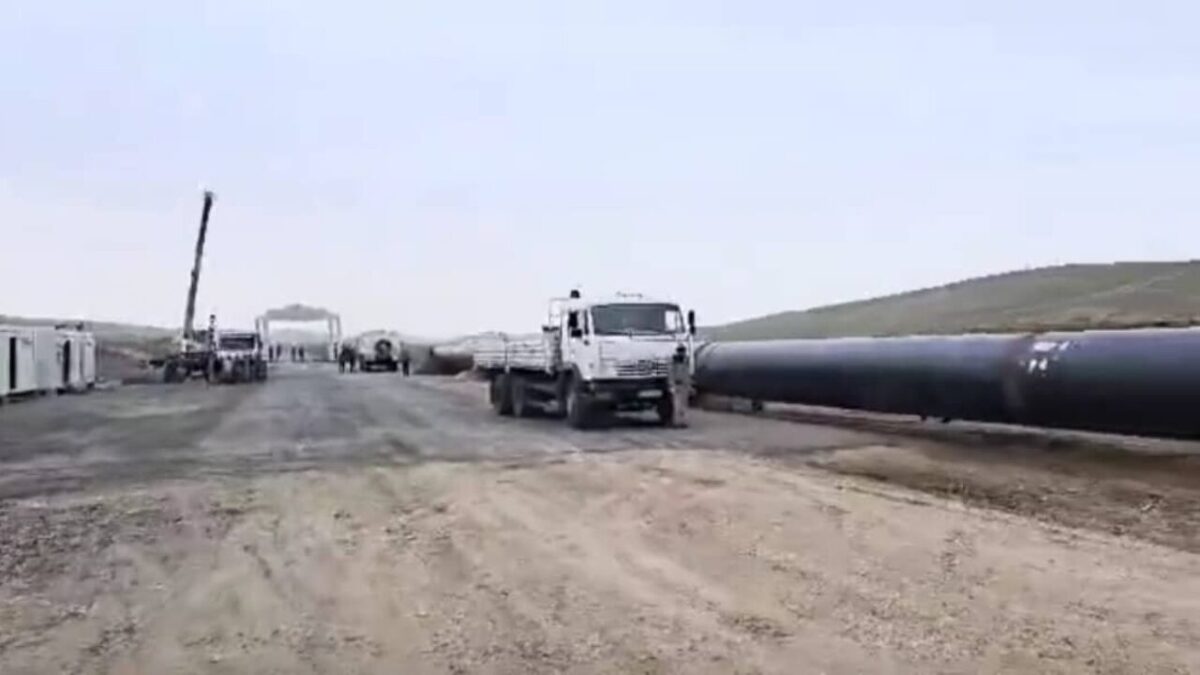KABUL, Afghanistan — The Taliban announced that construction on the Turkmenistan-Afghanistan-Pakistan-India (TAPI) gas pipeline has “practically” begun in Afghanistan.
The announcement was made by Zabihullah Mujahid, the Taliban’s spokesperson, who shared a video on X, saying that progress is underway on Afghanistan’s soil.
The claim comes amid longstanding delays for the $10 billion project, which has faced decades of challenges, including security concerns and geopolitical hurdles.
The TAPI pipeline, a major regional energy initiative, is designed to transport natural gas from Turkmenistan’s vast fields to South Asia, passing through Afghanistan and Pakistan before reaching India.
The pipeline spans an estimated 1,814 kilometers (1,127 miles), with 816 kilometers (507 miles) cutting through Afghanistan. Once operational, it is expected to deliver 33 billion cubic meters of natural gas annually.
First conceived in the 1990s, the project has been delayed repeatedly due to security issues, political instability, and competing regional interests. Despite agreements being signed in 2016 under Afghanistan’s previous government and an official groundbreaking ceremony held in 2018, little tangible progress has been made on the ground.
Taliban’s involvement
Since taking power in August 2021, the Taliban have expressed support for TAPI, viewing it as a critical opportunity to bolster Afghanistan’s economy and demonstrate their commitment to regional cooperation. In September, the Taliban held a symbolic re-inauguration ceremony for the project in Afghanistan.
However, experts remain skeptical. Security concerns, particularly in areas along the pipeline’s route in Afghanistan, continue to pose significant risks. The Taliban’s inability to gain widespread international recognition has also hindered confidence in their ability to oversee and secure major infrastructure projects.
India’s participation in the project remains uncertain, as tensions between New Delhi and Islamabad have led to skepticism about TAPI’s viability. Without India’s involvement, the pipeline’s strategic importance and economic benefits are significantly reduced.
The ambitious $10 billion project requires substantial investment and coordination among all stakeholders. The Taliban’s isolation from international financial systems and the lack of trust in their governance further complicate matters.
While the Taliban insist that work has resumed, independent verification of tangible progress remains unavailable. Observers note that no significant advancements have been reported since the project’s initial launch in 2018.
Many analysts view TAPI as more of a long-term aspiration than a near-term reality. “The pipeline’s success depends on political stability, regional cooperation, and security guarantees—all of which remain elusive,” said an energy analyst familiar with the project.
Without India’s full commitment and a resolution to the security issues, the pipeline risks remaining a “dream project,” as some experts have described it.




